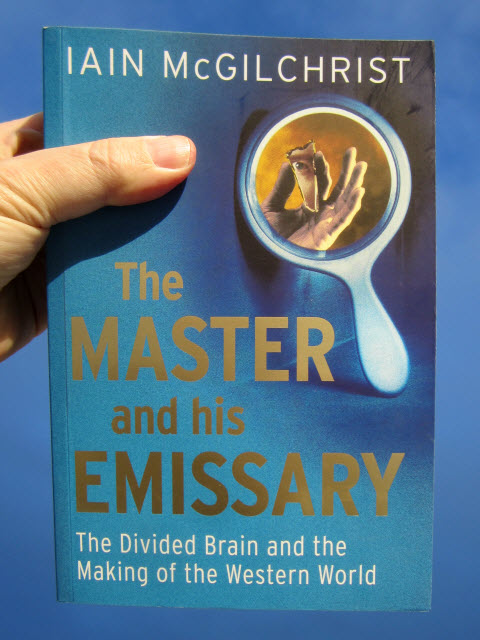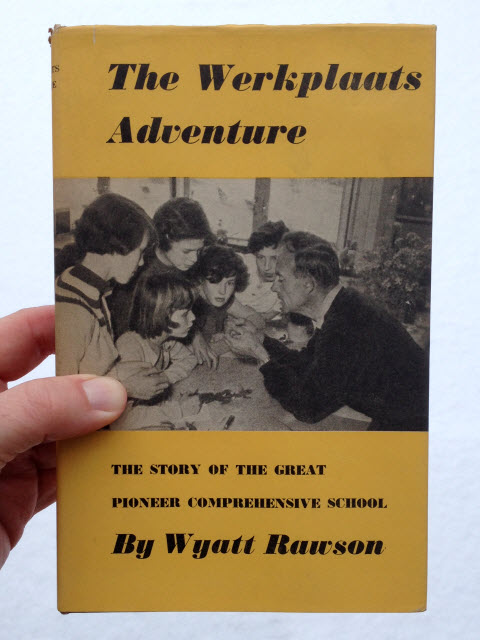This is a post in my series on organizing ”between and beyond.” Other posts are here. This is a retrospective of what has happened during the week. The purpose is to reflect on the work itself. Here is my previous retrospective. Here is my next retrospective.
What has happened? What needs to be done?
Three new books arrived this week. The first one is Iain McGilchrist’s The Master and his Emissary.

The second book is Judy Brown’s The Art and Spirit of Leadership. Here are some of the chapters:
1) Listen to yourself. Know what makes your heart sing
5) Create open spaces…
6) Practice creativity…
8) Take the risk of being less than perfect
10) Follow the threads of aliveness
11) Risk speaking your natural voice

The third book is Wyatt Rawson’s The Werkplaats Adventure: The Story of the Great Pioneer Comprehensive School. This is an old book which was first published in 1956. Wyatt Rawson describes how the school which Kees and Betty Boeke started in 1926 was built up, step by step. The Werkplaats Adventure is not only a story about education, but also about organizing. It’s a most interesting read! Here is my book review.

What was good? What can be improved?
The Werkplaats Adventure is an amazing book. I think that The Werkplaats Adventure provides a practical example of minimal structure for maximal freedom. It’s an example about how fluid structure arises spontaneously in a community based on no fear, friendliness, and support. Minimal structure is order without the use of force.
I have previously reviewed Brian Robertson’s book on Holacracy and Gerard Endenburg’s book on Sociocracy. Here is my comparison of Holacracy® vs. sociocracy. My conclusion was that if I would add anything to sociocracy, it would be conflict resolution. Otherwise, I would keep the method to an absolute minimum. The Werkplaats (or Workshop in English) is an example of this.
The secret of the school’s success lies in the way in which it dealt with the frustration of school life. The school community was a collaboration between the children and staff. Much of the organization of the Werkplaats was deliberately left fluid. This included the composition of the committees, which arouse spontaneously as needed. Human factors were paramount!
The Bespreking (or Talkover in English) embodied the spirit of the Werkplaats. The Bespreking arouse out of the family atmosphere of Kees and Betty Boeke’s original school. From the Bespreking, the Ronde was developed. Its purpose was to deal with all matters of order. The Ronde dealt with what was going wrong, not who had done wrong. There was no judging or condemning.
Related posts:
Holacracy vs. Sociocracy
Book Review: The Werkplaats Adventure
Book Review: Sociocracy
Book Review: Holacracy
Organizing in between and beyond posts
Leave a Reply
You must be logged in to post a comment.